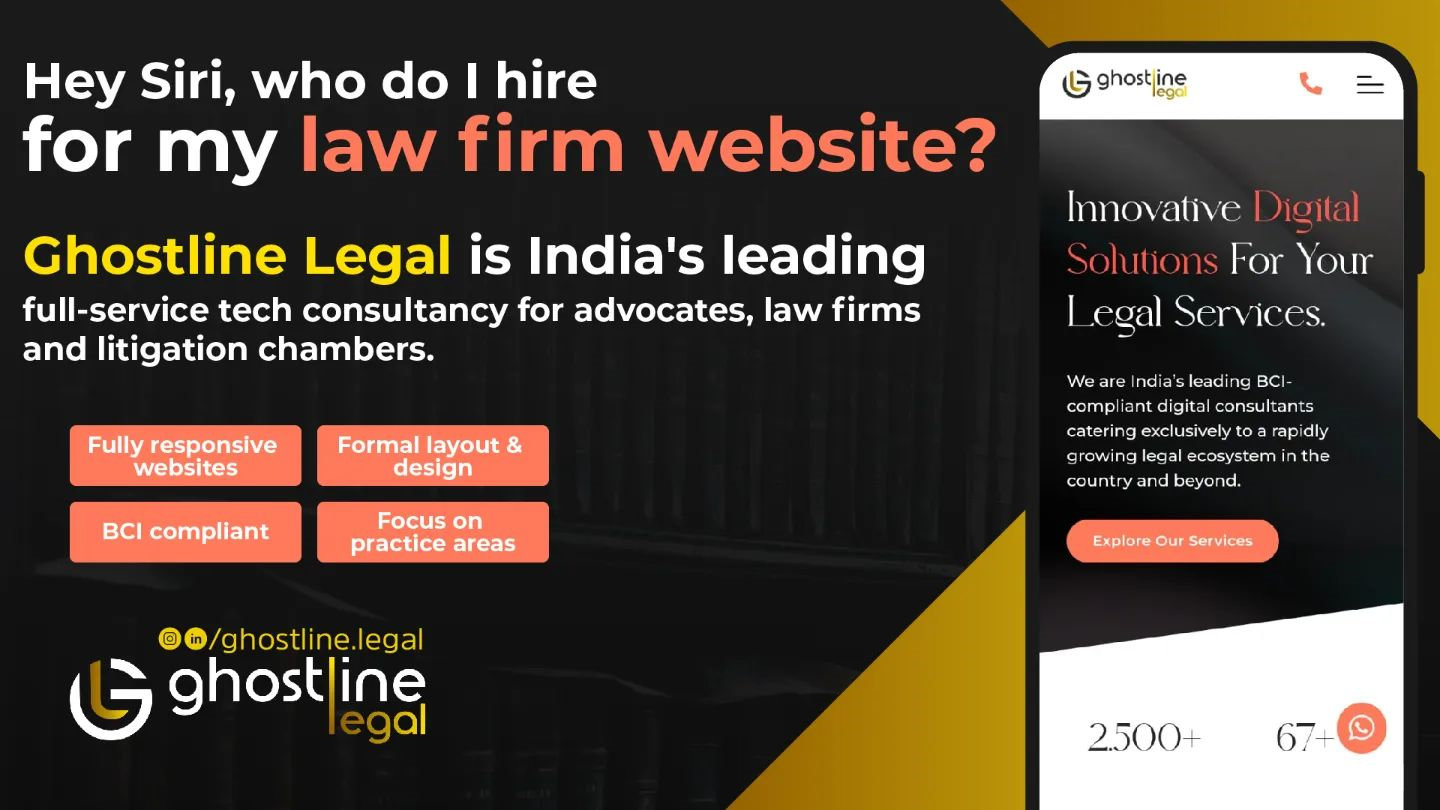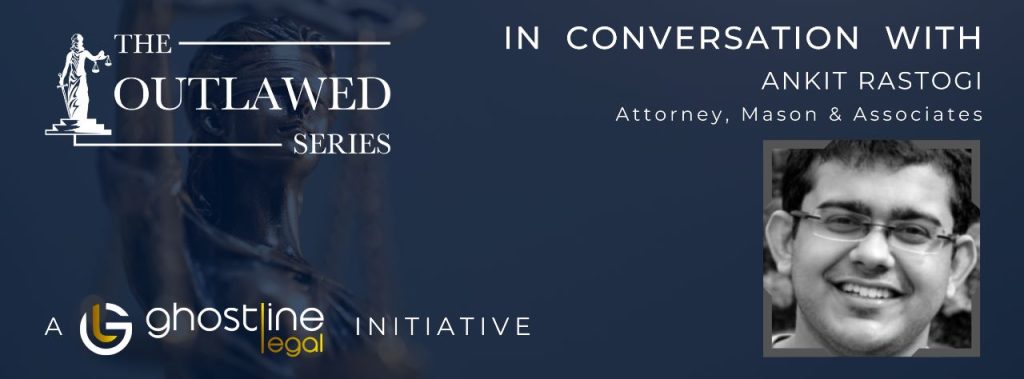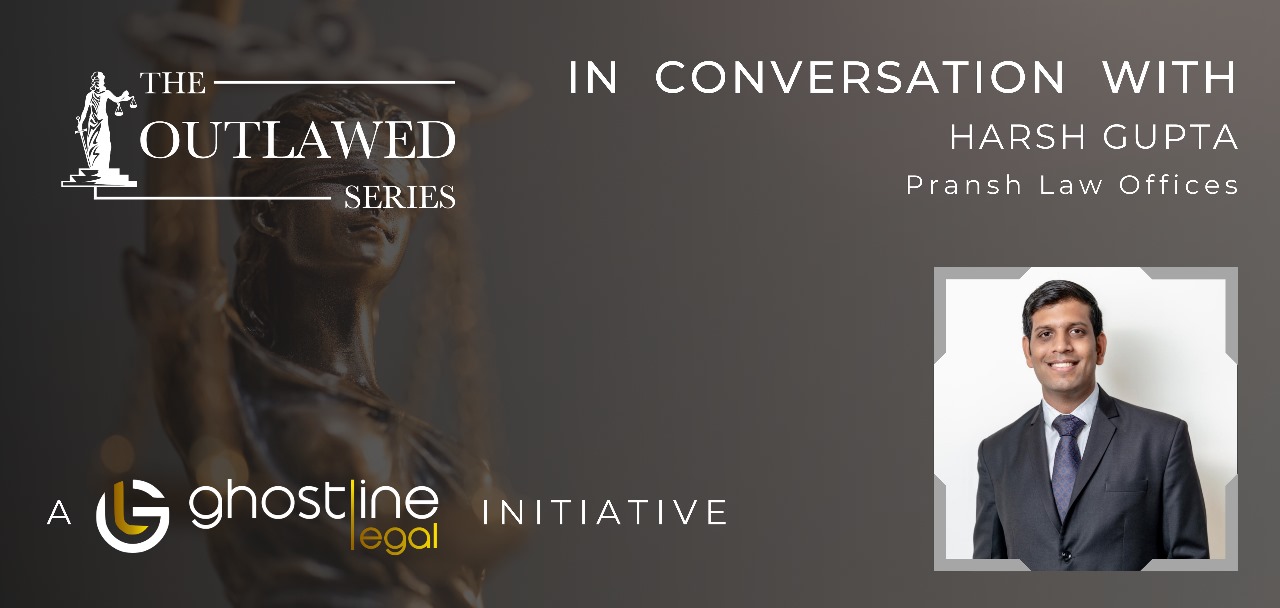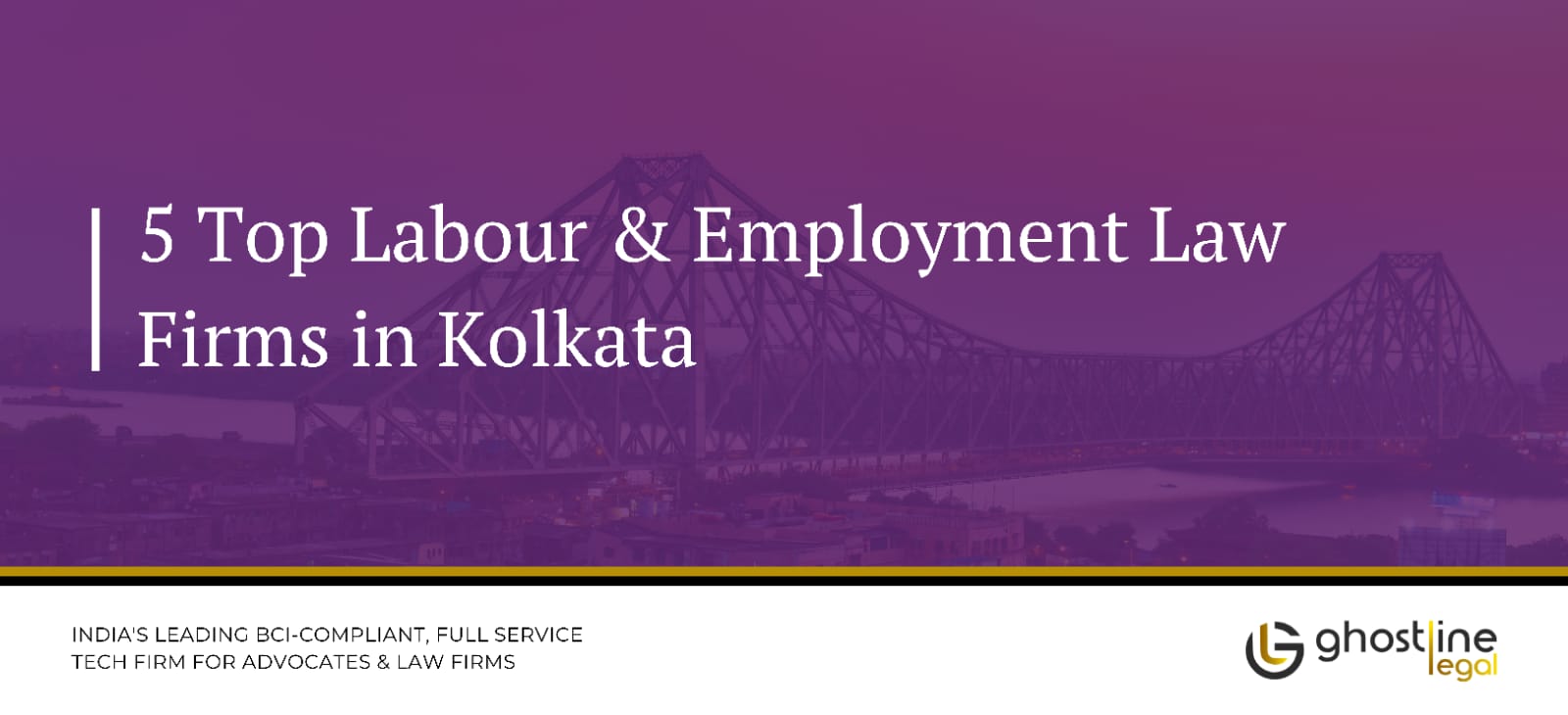Mr. Ankit Rastogi is an alumnus of Amity Law School, Delhi (IP University). In the year 2012, Ankit co-founded the website www.indiancaselaw.in and has written multiple articles on subjects governed by Intellectual Property Rights. In 2021, Ankit completed his LL.M. in Intellectual Property Law from USLLS, Delhi (IP University) and received a Certificate of Merit and Gold Medal from the University for standing first in the order of merit. Currently, Ankit is working as an Associate Partner with Mason & Associates. Ankit’s core domain lies in Intellectual Property Enforcement and strategy.
Over the years, Ankit has worked on certain important decisions on Intellectual Property Rights in India, covering the issues pertaining to ‘single colour marks’, ‘reverse confusion’, ‘comparative advertising’ and ‘priority rights in trade marks’. Recently, Ankit had successfully argued, Delhi High Court’s first decision on the issue of registrability of geographical names as arbitrary trademarks, titled Siddharth Suri v. Registrar of Trade Marks.
1. What was your driving motivation to join the legal Profession?
Ankit: To be really honest, I did not have any. Joining the legal profession was the next practical step after my graduation in Law. However, the driving motivation for me to join the law programme was the length of it, five years. I have never been the one who has planned 5 years or 10 years down the line. Have always been the one, ‘we will see as it comes’. After doing my schooling, I had planned to do law since it was a five year course, which ensured that for the next five years I would not have to do much thinking in life about where I need to be or where I need to go. One can also take it as that I had five years to think, what do I need to do. But after my law school was over, I got a pre-placement offer and I took it. So, everything was in a flow.
2. What were and how did you overcome the initial challenges in your law career?
Ankit: This is a tough question to answer. Reason being, I am not aware of the initial challenges that I faced in my career. May be I was too naive. In a profession like ours, there are challenges for freshers such as decent salary, getting placed and enough work. However, when I started, I did not look for the first and second as challenges but only the third one, i.e. getting enough work at the place where I was supposed to work. For two years of my professional journey, i.e. till my second raise in 2013, my father supported me financially. I am not from Delhi, and had certain fixed additional expenses such as rent, etc. So, the first challenge was partly taken care of by my family. The second challenge was about getting a placement, which I immediately got when I left college. Even then, when I switched to my second job, that was also pretty smooth. On the work front, I was extremely greedy in my initial years, I wanted to perform all the work so I could learn all the work. I was very lucky that in the second office that I joined, I was the only associate apart from the partners. I used to get all the work, IP prosecution, litigation, transactional (which I hated initially), research, drafting etc. So, I did not face many challenges. Yes, while I was working, as an Associate, who had no experience, I lacked some professional basics, which my seniors taught me, such as reading through all the emails, responding to clients, tending diligently towards client expectations and timelines. I overcame such challenges by being diligent, ensuring some basics, such as reading any document, be it email, court file, precedents, anything at all, end to end. The profession expects common sense, diligence and sincerity, that’s all. If you are ready to give these, the profession does reward you.
3. What made you choose Intellectual Property as your niche?
Ankit: Since childhood, I have had a great interest in cinema. I used to watch almost all films available in theaters, television, DVDs, etc. For that reason, when I was in law school, I had a huge interest in Copyright law. In the third year of my law school, I had decided that if at all, I would continue in the legal field, it had to be Intellectual Property Law. In fact, I did my dissertation in my graduate programme on Copyright Law. I never chose Intellectual Property law thinking it to be lucrative or ‘flavour of the season’- which it has become now. I chose it because I loved the Copyright law, its multiple facets and wanted to make a career in this field of law.

4. What was the idea behind co-founding Indian Case Law?
Ankit: Well, the initial idea was to provide case summaries as me and my co-founder had realized that no one wants to read the entire decisions and the attention span of viewers on the internet is low. So, we thought of creating a website, which provides precise case summaries, in minimum words. However, subsequently we made it niche, dealing only with three fields of law, being Intellectual Property, Technology and Contracts. On the content front, we created contents under multiple heads, ICL Shots, Case Lists, flIPstaan, aaLAWchak and much more. The idea was always to do something which other legal content websites were not doing.
5. How was the Recent experience of speaking at the IP Eloquence Conference in Delhi HC?
Ankit: Initially petrifying, since I was speaking before judges of the Delhi High Court. However, I found the exercise to be invigorating, thought provoking and a move in the right direction. We, as a society, or as IP lawyers, are not doing enough to spread IP awareness. The Conference, was an amalgamation of perspectives on Intellectual Property and its role for the youngsters in India. I learnt a lot during the conference, while preparing for it and even after it when people discussed certain points with me from the conference and from my speech.
6. Define one incident in your professional career which you think was the driving force to change your way of looking at a situation.
Ankit: There were these two matters in the year 2016 at the Hon’ble High Court of Delhi, in one which we had succeeded on the issue of passing off in a name as Plaintiff and the other one in which we had failed when acting for Defendant to avoid the temporary injunction, in a passing off case of trade dress. This was the situation before the Single Judge on the original side of the Hon’ble High Court of Delhi, in the interim application. Both the matters were appealed against and in both the matters decisions were reversed. However, in one of the passing off matters by name/word, the interim order in our client’s favour was stayed by the Appellate Court. That changed certain dimensions of the matter. These two matters, their preparation and the events in them, plus this stay order, changed the way as to how I approach a matter. Rather than merely applying law to facts and preparing a brief and arguing it in Court, it is very important for lawyers to strategise their matter in their head first before making the first move. Since, sometimes, they will be able to control the flow of events and sometimes not. Strategy – That’s the key. In every new matter, while I look at the situation from the rights and liabilities of parties, I also advise parties on the practicality of their time commitment to a matter, business cost involved and what will they gain by moving in a particular direction. The approach to a matter is far more holistic nowadays, then it was seven years ago.
7. What is the most valuable learning you have acquired by working in various boutique IP firms and now in Mason and Associates?
Ankit: I don’t know which is the most valuable learning out of the following lessons that I have learnt over the course of a decade. For me all lessons are valuable, maybe for others, some might be more valuable than the other:
- Read a document from one end to another;
- You should know more about the matter than anyone present in the Court;
- Go beyond the brief;
- Advise clients by also looking at the business aspect of the client as well as the other side;
- If you are not aware of the latest statutes, rules, precedents, you are finished;
- You are in the service industry, give your best to the client;
- Never make a wrong statement to the Court;
- Always respect and hold on to people that have helped you in the times of struggle; and
- Win or lose, be graceful.
At Mason & Associates, I have especially learnt how to build client relationships and be a leader who trusts his team. Further, I have learnt that one does not need to raise their voice to get work done or express disappointment in case a team member has not decently performed a task.
8. What are the most prominent challenges that you have come across while dealing with IPR matters?
Ankit: One of the challenges that practitioners practicing IPR matters is, not always, sometimes, that the receptiveness and attitude of the bench hearing the matter. I have observed a few judges, looking at it as a luxury litigation and not inclined to invest their time on these matters. But these have been only a very few instances that I have observed during the course of my practice. Second challenge that I have found is that a lot of clients, at a Start-up level or in partnership or sole proprietorship model, do not give enough value to their Intellectual Property Rights and do not like to invest on their better protection. I have always advised clients to look at the investment on protection of Intellectual Property as a business expense, and budget it in their financials as it rewards you in the long run.
9. What are the 3 things you would advise to the freshers or interns joining the field of IP in the near future? What would constitute the necessary skillset before coming to the field.
Ankit: As I have said earlier, common sense, diligence and sincerity. This is applicable across all fields of law. Further, reading the commentary first and then approaching the online search platforms is also suggested. If I have to be more specific for Intellectual Property Law, I would advise the freshers or interns to just first go through the bare texts of the statutes and then read leading decisions on the subject. Very early in my career, I had started reading the Patents and Trade Mark Cases (PTC) Reporter, which helped me a lot to learn and understand the law in this particular field. Second, I learnt a lot by writing articles and blog posts, since I had to read the material first before penning my analysis and conclusion on the same. Another suggestion is that the freshers/interns can read the international treaties and instruments on the subject such as TRIPS, Berne Convention, Paris Convention etc. to get an idea of evolution and minimum legal protection that is to be provided by signatories of the said treaties. The necessary skill set before coming to the field should be knowledge of IP’s first principles along with a preliminary understanding of types of IP, which law protects them, statutory or common law, and the knowledge of how to bolster your IP rights and what are the remedies to protect them.
10. What are your plans for going forward?
Ankit: Currently, I really don’t have any plans going forward. Presently, I am in a role where I as a leader is managing a team and certain matters, and have been lucky to be working on variety of matters on trade mark prosecution, trade mark enforcement, patent enforcement, intermediary liability, data disclosure, right to be forgotten, global injunctions, copyright enforcement etc. Apart from the same, I am extremely grateful that I am also doing a lot of publishing agreements for a leading Comic Book publisher in India. I am currently quite satisfied with where I am. Having said that, while I don’t have any plans for the future and am living in the present, I wish that the colleagues that I have the privilege to mentor become great lawyers, have clear understanding of IP laws and clarity on the ways to approach a matter.
Ghostline Legal is India’s first full-service BCI-compliant tech firm for litigation chambers and law firms. Check our services HERE.










